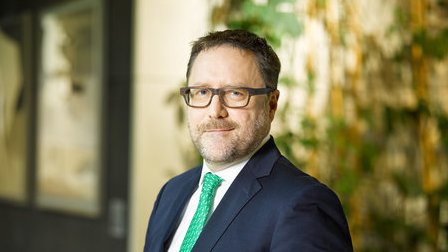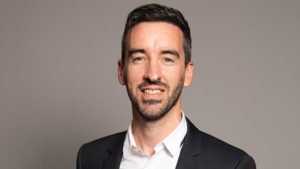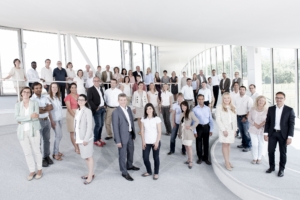
Polpharma: Making biologics economic
Originally a generics producer, Polpharma has rapidly entered the biologics space in the past few years. Whats the vision and strategy driving that expansion?
With 80 years of experience in the manufacturing of small molecule drugs, Polpharma has been a unparalleled success story starting in the CEE market and expanding into the European market. Today, the private company in the number one pharmaceutical company in Poland. Our strategic plan is to replicate that success in the biopharmaceutical space.
You invested a lot of money, didnt you?
Pollano
Exactly, backed by investments of some 100m, we commenced our expansion in 2013. Today, we have a proprietary pipeline of five biosimilars co-developed with our joint-venture Bioeq in Munich. However, our main business focus remains in the CDMO market. We want to become one of the biopharma CDMO majors in Europe. Seeing the cost of goods becoming a top priority in very early biopharmaceutical development, we started with a high upfront investment into our R&D centre in Gdansk in 2013, offering high throughput process development, analytical and R&D labs, and a modular, single-use GMP pilot facility for clinical study supply. Production capacity is currently being upgraded from up to 1,000L to 2,000L scale. Besides production using different eukaryotic production cells, we are currently expanding our microbial manufacturing to the 500L scale, and the fill and finish capacities there to 5,000 vials and syringes. Since we acquired Utrecht-based CHO cell line developer Biocereos and its proprietary CHObc cell line technology to produce protein NMEs and biosimilars at maximal yield last year, Polpharma covers the entire value chain from cell line and bioprocess development over biologics production, DSP, and fill and finish.
What about large scale manufacturing?
Pollano
With a view to the growing adoption of personalised medicine, gene therapy and orphan drugs, Im not convinced that this is the future in biomanufacturing, but for sure, that smaller, high-yield batches are. Thus, the next logical step in Polpharmas expansion was to build a larger scale, modular, single-use production and fill and finish plant. A 100m facility, set to start production in the first half of 2019, is under construction near Warsaw. Why modular and single use? Studies and our experience at the mirror-facility in Gdansk have shown that modular single-use can cut time-to-market and capital expenditure by 50%. It can cut change-over times by a factor of five, while increasing output compared to less flexible, stainless steel tanks.
To what degree can Polpharma address special customer needs?
Pollano
At the current stage, we still have the freedom to operate in Warsaw, which means that we can even discuss the establishment of stainless steel or perfusion reactor equipment if required. However, the flexible, modular, single-use approach in USP and DSP, together with lyophilisation capacities and, finally, a fill and finishing line of 30,000 vials or syringes is at the core of our expansion. We are open to production with alternatives to CHO cell lines and are already conducting projects with plant cells. And, we are currently discussing how we can combine small and large molecule know-how at Polpharma for the manufacture of ADCs.
Federico Pollano, Business Development & Contract Manufacturing Director at Polpharma, has been working in the pharmaceutical industry for 26 years. From 2008 until 2015, he was Managing Director at Richter-Helm-Biotec, and from 2005 until 2007, he led the generics business at Helm AG. Prior to that, he had leading positions at BioGenerix AG ratiopharm, Glaxo Wellcome, and Zambon.


 Romain Buisson
Romain Buisson Confo Therapeutics NV
Confo Therapeutics NV AC Immune SA
AC Immune SA